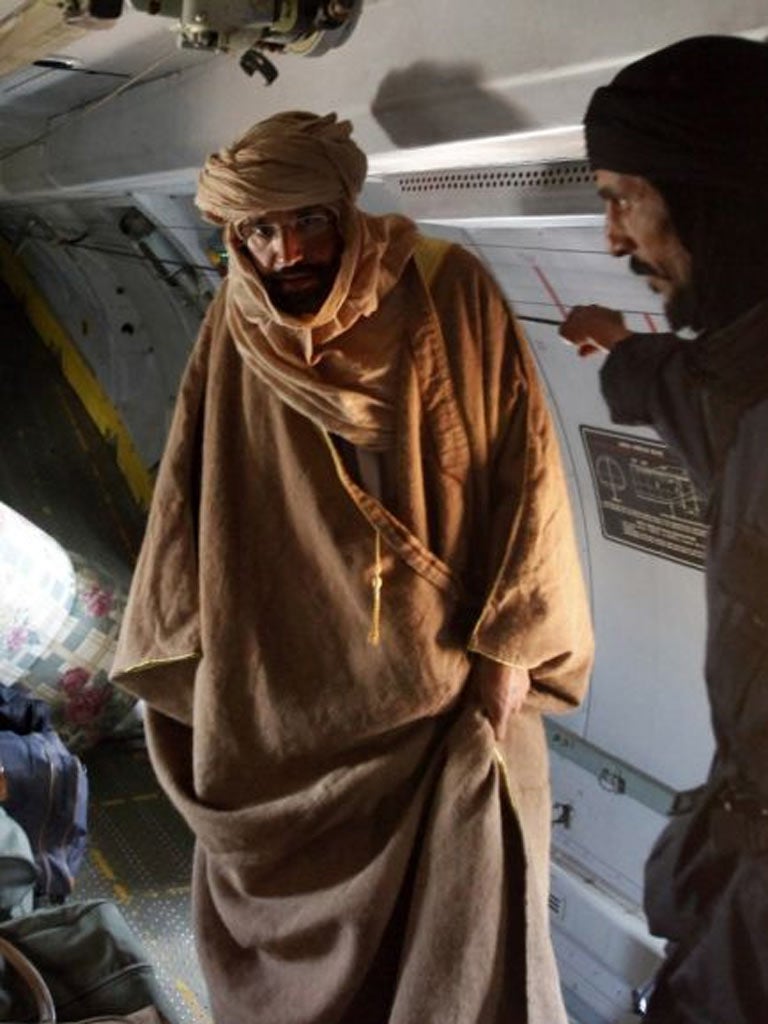Gaddafi's son set for Libyan trial

The captured son of Muammar Gaddafi is likely to be tried in Libya, but with judges from the International Criminal Court involved in the case.
The court's prosecutor Luis Moreno-Ocampo held talks in Tripoli with Libya's new leaders about their plans for Saif al-Islam Gaddafi, who is being held in the mountain town of Zintan, south-west of the capital.
The ICC has charged him with crimes against humanity. Libya's new leaders have said they will try him at home even though they have yet to set up a court system.
"Saif is captured so we are here to ensure co-operation," Mr Moreno-Ocampo said. "If they (Libyans) prosecute the case, we will discuss with them how to inform the judges, and they can do it, but our judges have to be involved."
The ICC, which is based in The Hague, Netherlands, has also charged Gaddafi's former intelligence chief, Abdullah al-Senoussi, with crimes against humanity.Libyan officials have said al-Senoussi was captured over the weekend and is being held in the southern city of Sabha.
Rights groups have called on Libya to hand both men over for trial in The Hague, and Mr Moreno-Ocampo stressed that even if Libyans want to try the two men in Libya they must still cooperate with the world's first permanent war crimes tribunal.
Libya is obliged by a UN Security Council resolution to work with the court, but that does not necessarily preclude a trial in Libya. If the National Transitional Council can convince judges in The Hague that the country has a functioning legal system that will give Saif al-Islam and al-Senoussi a fair trial, the ICC could turn it over to Libya.
"The International Criminal Court acts when the national system cannot do it," Mr Moreno-Ocampo said. "That's why we are here, to understand what they are doing."
Libya's new leaders have not yet established a functioning court system, and have been struggling to put together a new transitional government since Gaddafi's fall.
Saif al-Islam, who was once the face of reform in Libya and who led his father's drive to emerge from pariah status over the last decade, was captured on Saturday in the desert in the south of the country.
In new video footage taken the day of his capture he warns that Libya's regions that united to oust Gaddafi will turn against each other "in a couple of months or maximum one year," suggesting the country will descend into infighting.
There have been signs in recent months of growing tensions among Libya's powerful regions, and even after Gaddafi's fall in August and after his capture and killing in October, the country's numerous and sometime competing revolutionary factions have refused to disarm, raising fears of new violence and instability. The regions, backed by bands of armed fighters, are able to act autonomously, even on issues of the highest national interest.
Join our commenting forum
Join thought-provoking conversations, follow other Independent readers and see their replies
Comments
Bookmark popover
Removed from bookmarks